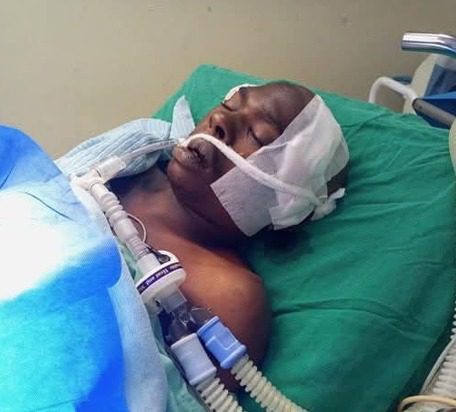Boniface Kariuki, the 22-year-old hawker shot during protests demanding justice for blogger Albert Ojwang, died from a severe head injury caused by four bullet fragments lodged in his brain, a government pathologist has confirmed.
According to Government Pathologist Dr. Peter Ndegwa, Kariuki succumbed to injuries sustained after he was shot at close range on June 17, 2025, along Tom Mboya Street in Nairobi. The postmortem was conducted at Kenyatta National Hospital (KNH), where he had been in the Intensive Care Unit (ICU) for two weeks before passing on Monday, June 30, at 3:15 p.m.
Kariuki was hit during nationwide protests triggered by the death of blogger and teacher Albert Ojwang in police custody. The demonstrations called for the resignation of Deputy Inspector General of Police Eliud Lagat and an end to police brutality.
At the time of the shooting, Kariuki was hawking face masks in downtown Nairobi when he was struck in the head by a police bullet. He was rushed to KNH and placed on life support, undergoing multiple surgeries in a desperate effort to save his life.
Though the initial operation removed one bullet, surgeons could not extract all the fragments, which had deeply embedded into critical parts of the brain. Complications intensified in the following days.
A third surgery, performed on Friday, June 27, involved a tracheostomy to insert breathing tubes directly into his throat, and a procedure known as “pegging” to place feeding tubes into his abdomen, enabling nutrition intake as he could no longer swallow.
Despite the efforts, Kariuki was declared brain-dead on Sunday, June 29. His family was called to the hospital at midnight and informed that although his heart was still beating, he had no brain activity.
“They told us he is now brain-dead, but there is still a pulse,” said family spokesperson Emily Wanjira. “They cannot turn off the life support machine because of legal issues. The next day, they told us he is no more.”
The family now faces the burden of hospital bills accrued during his two-week stay in ICU. “We will now have to get the total bill because we have been told he is no more,” Wanjira added.
Kariuki’s death adds to growing outrage over police use of force during peaceful protests. Civil society groups have condemned the violence and called for justice for all victims of police brutality.
Meanwhile, the High Court has ordered that two police officers, Masinde Barasa and Duncan Kiprono—linked to the shooting—be held in custody for seven more days to allow further investigations. The Independent Policing Oversight Authority (IPOA) has opened an inquiry into the case.
Kariuki’s story, like that of Albert Ojwang, has become a tragic emblem of the deadly consequences of unchecked state violence in Kenya.

